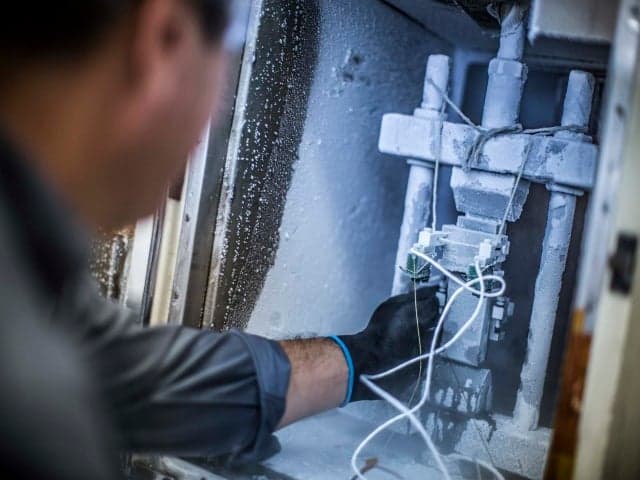Melt Flow Rate Testing
Gain fast, reliable insights into your thermoplastic materials with ASTM D1238 melt flow rate testing. Our testing supports quality control, product development, and failure investigations, helping you predict polymer behavior under various conditions. Element’s polymer experts offer hands-on guidance to ensure your materials meet performance and compliance standards.

What is Melt Flow Rate Testing at Element?
Melt flow rate testing measures how molten thermoplastic resins flow under specified conditions. It is widely used in quality control, material comparison, and failure analysis to evaluate polymer behavior. At Element, we evaluate material viscosity using extrusion plastometers to determine flow characteristics at defined temperatures and shear stresses.

What Can Element Offer You For Melt Flow Rate Testing?
Key tests offered
Key tests offered
We perform both Procedure A and Procedure B testing under ASTM D1238 to determine Melt Flow Rate (MFR) and Melt Volume Rate (MVR). Our comprehensive testing evaluates material viscosity, thermal stability, and molecular weight characteristics for quality control and product development applications. Testing capabilities include:
- Full melt viscosity analysis
- Standardized die extrusion evaluation
- Thermal stability assessment
- Molecular weight comparison studies
Materials we test
Materials we test
We test amorphous and semi-crystalline polymers, offering comprehensive analysis for materials requiring specific moisture level preparation and those ready for immediate testing. Our capabilities encompass both dried and as-received polymer testing, with specialized expertise in:
- Nylon and polyester materials requiring precise moisture control
- Polycarbonate and other amorphous polymers
- Polyolefin polymers requiring no prior treatment
- Various thermoplastic resins with specific handling requirements
Methods and solutions offered
Methods and solutions offered
Our testing process combines precise temperature control and standardized die extrusion using weighted pistons to deliver accurate, reliable results. A thermoplastic sample is heated in a barrel at a specified temperature, melted to a viscous fluid, and extruded through a standardized die under controlled weight. The extruded sample is then measured by weight or volume to determine material flow properties. We employ specialized preparation techniques for moisture-sensitive materials and conduct detailed analysis of flow characteristics under varied conditions. Our methodology includes:
- Controlled heating and melting processes
- Standardized die extrusion procedures
- Precise weight measurements
- Detailed viscosity analysis
Quality control expertise
Quality control expertise
Our specialized polymer testing capabilities support both quality control verification and product development applications. We help you validate material consistency, compare new materials, and make informed decisions about polymer performance in various applications.
Standards we test to and materials we test
- ASTM D1238
Amorphous polymers
- Polycarbonate
- Thermoplastic resins
Semi-crystalline polymers
- Nylon
- Polyester
- Polyolefin polymers
Your Challenges, Our Solutions
Need for reliable quality verification
Comparing and selecting reliable materials
Identifying and mitigating failure risks
Controlling moisture sensitivity
Why Choose Element

Industry-leading expertise
Comprehensive testing solutions
Standardized procedures
Global testing network

Explore our global network of labs and find your nearest location
VIEW ALL LOCATIONSRelated services

Materials Testing Services
View our comprehensive materials testing service range, combining destructive and non-destructive testing for a wide range of materials and industries.

Energy Coatings Testing Services
Protect your critical energy assets with Element's specialized coatings testing. We simulate extreme offshore and pipeline conditions to validate performance, prevent costly failures, and ensure compliance. Learn More.

Polymer Testing & Characterization Services
Maximize your polymer material performance with Element's comprehensive testing services. Our expert analysis translates complex data into actionable insights across your entire product lifecycle.

Failure Analysis Services
Need expert Failure Analysis Services? Identify root causes fast with Element's advanced testing, global reach, and rapid turnaround. Get expert insights today.

Mechanical Testing of Polymers
Element provides precise mechanical testing of polymers, delivering critical data on strength, resistance, and durability. Our expert analysis helps industries optimize material performance and maintain compliance.
